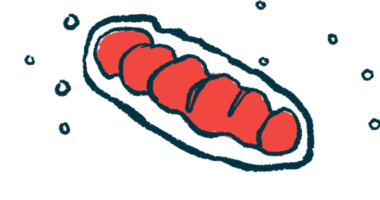Dosing begins in Phase 1 trial of potential ALS therapy RAG-17
Treatment aimed at patients carrying SOD1 gene mutation

A Phase 1 clinical trial testing RAG-17, an investigational therapy for people with amyotrophic lateral sclerosis (ALS) carrying mutations in the SOD1 gene, has dosed its first participant.
The trial (NCT06556394) aims to determine the safety and tolerability, pharmacological properties, and preliminary signs of efficacy of multiple dose levels of RAG-17.
It will enroll about 32 people with SOD1-ALS who will be randomly assigned to receive the experimental RNA-based therapy or a placebo via an injection into the spinal canal. Patients will be able to continue receiving their standard ALS therapies.
The Phase 1 trial is being led by Yilong Wang, MD, PhD, of Beijing Tiantan Hospital of Capital Medical University and Zhiying Wu, MD, of the Second Affiliated Hospital of Zhejiang University School of Medicine, with the collaboration of Huifang Shang, MD, of West China Hospital of Sichuan University.
“The first patient dosed in the RAG-17 trial marks a pivotal milestone in our mission to combat ALS, one of the most devastating neurodegenerative diseases,” Long-Cheng Li, MD, founder and CEO of developer Ractigen Therapeutics, said in a company press release. “This achievement underscores our unwavering commitment to advancing RNA-based therapies that have the potential to transform the lives of patients and families affected by rare and severe conditions like ALS.”
Molecule aimed at faulty protein
Up to 20% of familial ALS cases, those in which multiple family members are affected, and approximately 2% of sporadic ALS cases are associated with mutations in the SOD1 gene.
The mutations result in the production of an abnormal SOD1 antioxidant enzyme that’s unable to effectively neutralize the free radicals produced during normal metabolism. The faulty protein is also prone to form toxic clumps that further contribute to cellular damage and death.
RAG-17 is a small interfering RNA (siRNA) molecule that’s designed to mitigate this issue by lowering levels of the defective SOD1 protein. It works by targeting and promoting the degradation of SOD1’s messenger RNA, the template molecule that carries information from DNA to make proteins. This prevents the production of the harmful protein.
The molecule was designed with the company’s Smart Chemistry-Aided Delivery platform, which combines the therapeutic siRNA molecule with another molecule that boosts its delivery to the brain and spinal cord.
An investigator-initiated trial (NCT05903690) tested RAG-17 in six adults with SOD1-ALS. Patients started on a 60 mg dose and were able to increase it every two weeks until an optimal dose was determined, at which point that dose was given every two months for up to eight months.
Findings from the trial validated the potential benefits of RAG-17, which was well tolerated at all doses tested and led to meaningful changes in clinical outcomes and disease biomarkers.
RAG-17 has received U.S. Food and Drug Administration orphan drug designation, a status that supports the development of treatments for rare and serious diseases by offering incentives such as exemption from certain regulatory fees and seven years of market exclusivity if an approval is ultimately granted.







